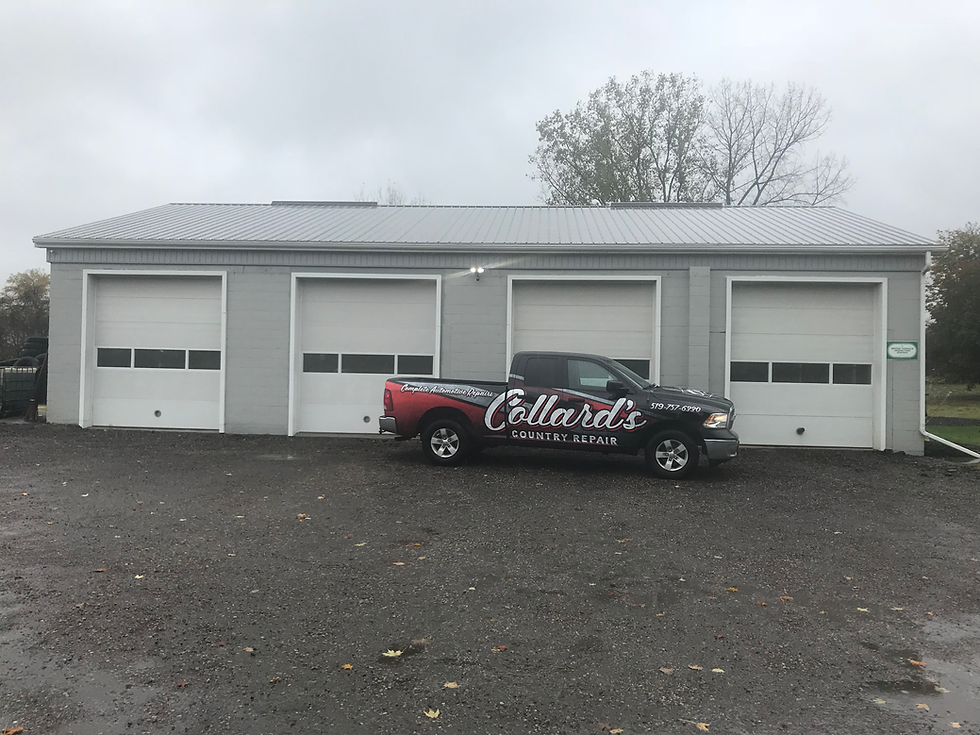
COLLARD'S COUNTRY REPAIR
If you need a mechanic you can trust with your vehicle, look no further. At Collard's Country Repair, we believe in more than just fixing cars—we believe in building lasting relationships with our community. With dealership-level expertise and a commitment to exceptional customer service, we ensure your vehicle is cared for—completely stress-free.
24 Hour Drop Off
Wi-Fi
Waiting Room

As a family-owned business, we know that a great auto shop is built on trust and relationships. At Collard’s Country Repair, we combine the precision of dealership-level service with the personal touch you expect from a local business. Whether you’re in for routine maintenance or a major fix, our expert team treats every vehicle like it’s our own ensuring you drive away with peace of mind.
With a commitment to long-term relationships and dependable service, we’re your local go-to for all things automotive. Stop by or give us a call today—we're here to help!
WELCOME TO
COLLARD'S COUNTRY REPAIR



"Great experience here. Very good work and a great price. Talked me through everything they did. Will definitely be making this my go to shop."
- T.K.
We are very happy with their work, quality and prices. We have been taking our vehicles here for the last 2 years with no issues.
-K.B.
Wonderful mechanics who care about the person and not their bottom line
-J.K.
Hear from our
Satisfied Customers

Join the Collard’s Country Repair Family Today!
Subscribe to our newsletter
For maintenance tips, business updates and special offers.
For vehicles using conventional oil, it’s recommended to change the oil every 5,000 km or roughly every 3 months, whichever comes first. If your vehicle uses synthetic oil, you can typically extend this to around 8,000 km or 5 months. However, always check your vehicle’s manual for specific recommendations, as driving habits and conditions can affect the frequency of oil changes.
It’s a good practice to rotate your tires every 10,000 km to promote even wear and extend the life of your tires. Regular rotations help improve handling, fuel efficiency, and overall performance, especially if you drive frequently or under varied conditions. Tire rotations also help prevent uneven wear patterns, which could lead to the need for early replacement.
Wheel alignments are important for keeping your vehicle’s handling smooth and your tires wearing evenly. It’s recommended to have an alignment done whenever you install new tires, after any suspension or steering repairs, or if you notice your car pulling to one side, uneven tire wear, or an off-center steering wheel. Regular alignments can help prevent long-term damage to your suspension system.
Winter tires should be installed once the temperature consistently drops below 7°C. At this point, all-season tires begin to stiffen and lose their grip, whereas winter tires remain flexible and provide better traction on icy or snowy roads. This usually happens around early November, but it’s best to monitor local weather conditions and make the switch before the cold weather hits.
FAQs
195 King Street, Burford ON. N0E 1A0
MON - FRI: 8:00AM - 5:00PM
How often should I change my oil?
For vehicles using conventional oil, it’s recommended to change the oil every 5,000 km or roughly every 3 months, whichever comes first. If your vehicle uses synthetic oil, you can typically extend this to around 8,000 km or 5 months. However, always check your vehicle’s manual for specific recommendations, as driving habits and conditions can affect the frequency of oil changes.
How often should I rotate my tires?
It’s a good practice to rotate your tires every 10,000 km to promote even wear and extend the life of your tires. Regular rotations help improve handling, fuel efficiency, and overall performance, especially if you drive frequently or under varied conditions. Tire rotations also help prevent uneven wear patterns, which could lead to the need for early replacement.
How do I know I need an alignment?
Wheel alignments are important for keeping your vehicle’s handling smooth and your tires wearing evenly. It’s recommended to have an alignment done whenever you install new tires, after any suspension or steering repairs, or if you notice your car pulling to one side, uneven tire wear, or an off-center steering wheel. Regular alignments can help prevent long-term damage to your suspension system.
FAQs
What time of year should I put on winter tires?
Winter tires should be installed once the temperature consistently drops below 7°C. At this point, all-season tires begin to stiffen and lose their grip, whereas winter tires remain flexible and provide better traction on icy or snowy roads. This usually happens around early November, but it’s best to monitor local weather conditions and make the switch before the cold weather hits.







